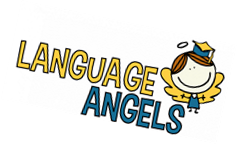Modern Foreign Languages

Intent
Through our Curriculum Drivers, ‘Collaborate, Contribute, Commit, Create and Celebrate’, at New Bewerley, children are inspired and excited by a relevant, broad, vibrant and ambitious foreign language curriculum with a wide variety of topics and themes. As Spanish speakers, all children, through Language Angels, are taught to develop four key Spanish language skills; listening, speaking, reading and writing, as well as, necessary grammar.
Our progressive foreign language curriculum enables pupils to use and apply their learning in a variety of contexts, ensuring solid foundations for future language learning at Key Stage 3.
Across Key Stage 2, all pupils will develop a genuine interest and positive curiosity about foreign languages, finding them enjoyable and stimulating. Learning an additional language, or showcasing possibly their mother language, will also offer pupils the opportunity to explore relationships between language and identity, developing a deeper understanding of other cultures and the world around them with a better awareness of self, others, and cultural differences. As Spanish speakers, pupils are working towards becoming life-long learners.
Implementation
Here at New Bewerley, each class is allocated dedicated time for their language lesson. As a basis, we use the Language Angels scheme of work and resources to ensure we offer a relevant, broad, vibrant and ambitious foreign languages curriculum that will inspire and excite our pupils using a wide variety of topics and themes.

Through the framework of the National Curriculum 2014, and our Curriculum Intent, Modern Foreign Language at New Bewerley aims to ensure that all pupils:
- Are stimulated through interest and enjoyment with exciting and engaging lessons.
- Understand and respond to spoken and written language.
- Speak with increasing confidence, fluency, and spontaneity, finding ways of communicating what they want to say, including through discussion and asking questions, and continually improving accuracy of their pronunciation and intonation.
Pupils will be taught to:
- Listen attentively to spoken language and show understanding by joining in and responding.
- Explore the patterns and sounds of language through songs and rhymes and link the spelling, sound and meaning of words.
- Engage in conversations; ask and answer questions; express opinions and respond to those of others; seek clarification and help.
- Speak in sentences, using familiar vocabulary, phrases, and basic language structures.
- Develop accurate pronunciation and intonation so that others understand when they are reading aloud or using familiar words and phrases.
- Present ideas and information orally to a range of audiences.
- Read carefully and show understanding of words, phrases, and simple writing.
- Appreciate stories, songs, poems and rhymes in the language.
- Broaden their vocabulary and develop their ability to understand new words that are introduced into familiar written material, including through using a dictionary.
- Write phrases from memory, and adapt these to create new sentences, to express ideas clearly.
- Describe people, places, things and actions.
Example of a Knowledge Organiser - Year 3 & 4
Example of a Knowledge Organiser - Year 5 & 6
Example of a Knowledge Organiser - Year 3 & 4
Example of a Knowledge Organiser - Year 5 & 6
Impact
All children will leave New Bewerley with the ability to listen, speak, read and write in areas of Spanish which have been taught. All children will be equipped with the solid foundations that will enable them to be ready for the curriculum at Key Stage 3 and for future language learning.
Teachers use work, discussions and further learning experiences to form their own judgement to assess pupils’ knowledge and understanding. Children in EYFS and Key Stage 1 will be exposed to a range of cultures throughout the curriculum at New Bewerley, as well as opportunities to use a variety of languages to say hello, goodbye and thank you – through Language of the Week. Children in Years 3-6 are assessed at the end of each unit as either working towards, reaching, or exceeding the expected standard. This information is recorded on an assessment proforma after completion of a unit. Lesson 6 in each unit is a written assessment on the four key Spanish language skills; listening, speaking, reading and writing, as well as, necessary grammar. This information is considered when completing the assessment proforma.
Language of the Week Autumn 1 and 2
Children across school enjoy learning and celebrating a different language each week - this includes saying 'hello' in the chosen language when answering the register.
Children in Upper Key Stage 2 are encouraged to share their home language with their class and being 'the expert'.

